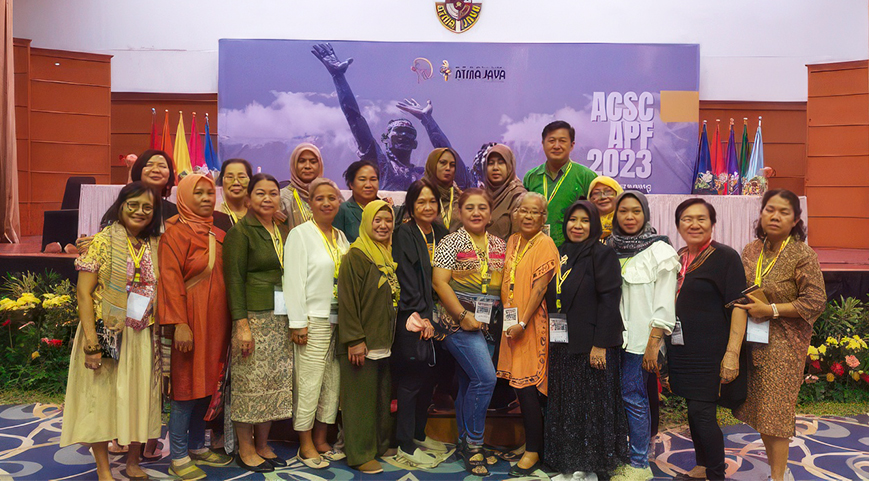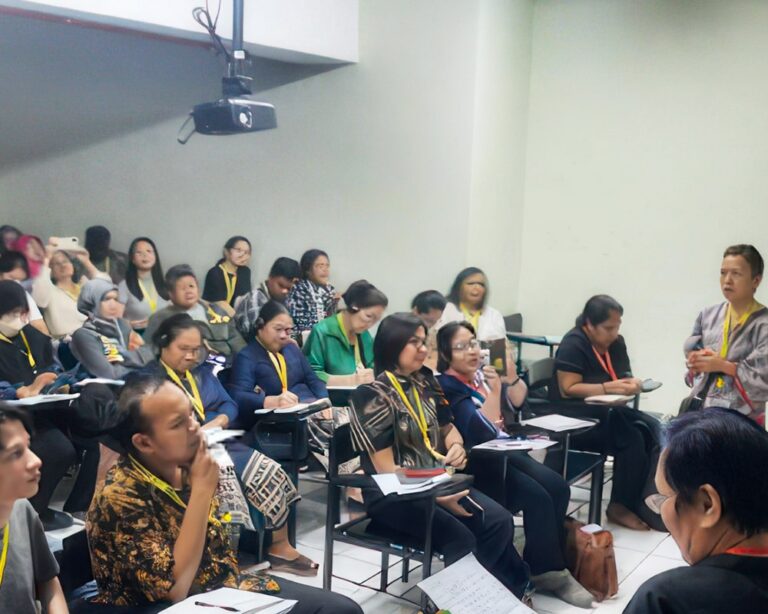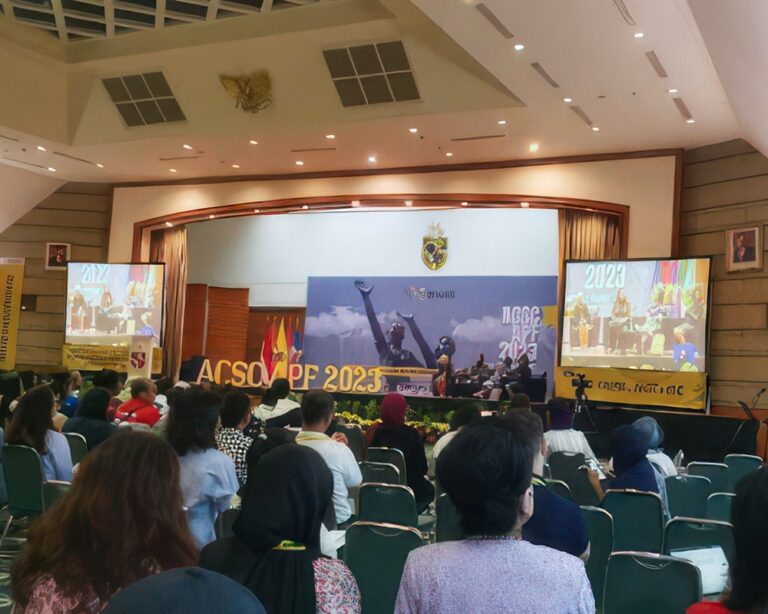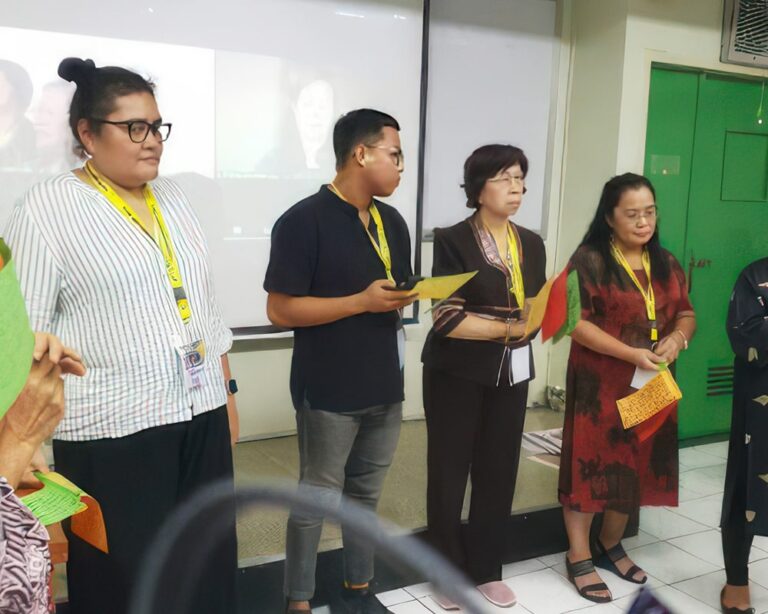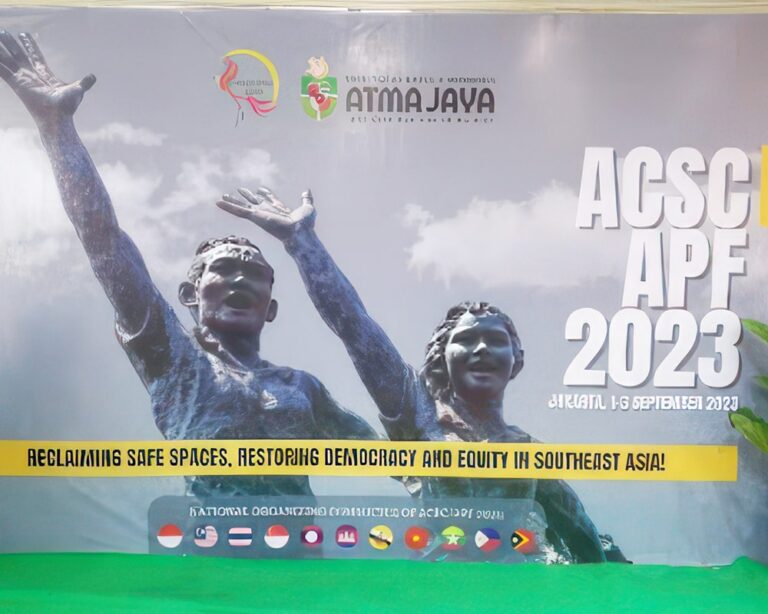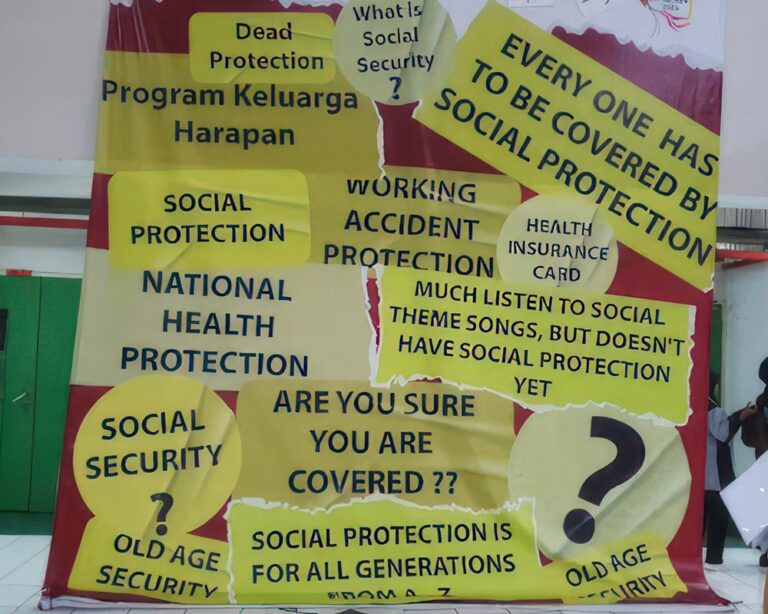By: Suntaree H. Saeng-ging, HNSEA Executive Director
HomeNet Southeast Asia (HNSEA) and our six country members are committed to ensure social protection for workers in the informal economy, in terms of essential benefits which respond to their needs, accessible government services, quality services and efficient scheme management.
Our efforts are focused at both the country and regional levels to achieve these goals. The ASEAN Civil Society Conference / ASEAN People Forum (ACSC-APF), organized every year, parallel with the ASEAN Summit of the leaders of all ten ASEAN member states, is the regional platform for us to raise our voices and advocate.
This year ACSC/APF was organized on 1st-3rd September 2023, two days before the ASEAN Summit, in Jakarta, Indonesia, under the theme “Reclaiming Safe Space, Restoring Democracy, and Equity in Southeast Asia”. HNSEA participants were 25 among 800 participants of the forum.
The forum consisted of plenary discussions, workshops, exhibition of various CSOs and issues, booths of products and cultural activities during the solidarity night. HNSEA participated at ACSC/APF 2023 by distributing two policy briefs: one on Social Protection and the other on the Social Solidarity Economy (SSE) and together with allied organizations and networks, such as AROSP, ASEC, INSP!RE, CCC, WIEGO, among others, HNSEA organized three workshops:
- Universalizing Maternity Protection to Foster an Inclusive Care Economy in Southeast Asia
- Inclusive Growth in ASEAN: Mainstreaming Social Solidarity Economy (SSE) and Improving Decent Work for Informal Workers
- Solidarity Economy, locally-led initiatives as counter-narratives to ASEAN economic integration and false climate solutions.
In the workshop on Universalizing Maternity Protection to foster an inclusive care economy in Southeast Asia, we shared the findings on the status of maternity protection in Southeast Asia countries, including policy gaps and workers’ situation from research on maternity protection in the agri-food sector in five SEA countries. We called upon ASEAN to provide guidelines on Gender Mainstreaming for maternity protection. We called upon ASEAN member states for maternity leave, access to healthcare, childcare and social benefits for all women workers. The stated schemes should move towards universal coverage for vulnerable groups, including workers in the informal sector, agricultural workers and migrants to enable women to have access to maternity services.
In the workshop on Inclusive Growth in ASEAN: Mainstreaming Social Solidarity Economy (SSE) and Improving Decent Work for Informal Workers, we call upon ASEAN and their member states to recognize and promote SSE as the socio-economic unit with a distinct identity and ratify, formulate and implement national laws and policies in line with the ILO’s Decent Work Agenda, ILO Resolution concerning decent work and the informal economy (2002), ILO R193 on Cooperatives, and R 204 on Concerning the Transition from the Informal to the Formal Economy. We also call upon all ASEAN member states to provide the space for representatives of SSE units to participate in the social dialogues where all relevant policies are decided.
While in the workshop on Solidarity economy, locally-led initiatives as counter-narratives to ASEAN Economic Integration and false climate solutions the world café model was conducted, home-based worker leaders from five countries shared their experiences of organizing in line with the Social Solidarity Economy (SSE) along with displaying their products.
All of our recommendations have been included in the ACSC/APF 2023 statement and will be sent to ASEAN leaders as well as made public.


